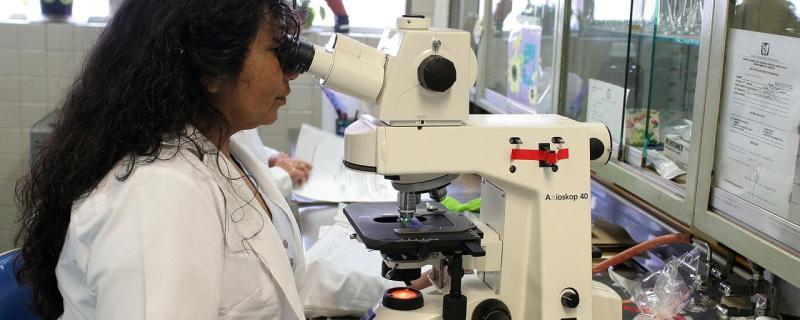If you are a budding researcher with a keen interest in evolution and biology, the Jawaharlal Nehru Centre for Advanced Scientific Research (JNCASR) has some good news for you. The multidisciplinary research institute in Bengaluru is all set to host the first-ever 15-day school in Evolutionary Biology. It is planned to be held from 12–26 March 2019 and is sponsored by the Science and Engineering Research Board (SERB).
News
In a recent study, researchers from the Institute for Stem Cell Biology and Regenerative Medicine (InStem), Bengaluru, and the University Hospital of Odense, Denmark, have observed some fascinating aspects of non-dividing stem cells from the bone marrow. The study, partially funded by the Department of Biotechnology, was published in the journal Stem Cell Research.
In a recent study, researchers at Bengaluru’s St. John’s Research Institute, the Indian Institute of Science (IISc), and St. John’s Medical College and Hospital, have described how the presence of a particular mineral in the urine can tell a tale about the health of our bones. The findings are published in the journal Scientific Reports, and the study was funded by the Wellcome Trust/DBT India Alliance and the Department of Science and Technology.
With nine of the ten most polluted cities in the world located in India, the country is grappling with increasing pollution that is affecting the health and wealth of its people. In Delhi, the national capital, the news of increased particulate matter in the air hits the headlines very often. Although anti-pollution masks and air purifiers have gained popularity, they are often expensive and inaccessible to the common man.
In a recent study, researchers from Christ (Deemed to be University), Bengaluru, have developed a technique to make fluorescent carbon nanoparticles using lignite, a type of coal that is available ubiquitously. These nanoparticles have the potential to be developed as glucose sensors to detect hypoglycemia or decreased glucose levels.The results of the study have been published in the journal Scientific Reports.
IIT Bombay student has won the Gandhian Young Technological Innovation (GYTI) Award for window-mounted solar cooker design
In a recent study, researchers at the Indian Institute of Science, Bengaluru, have described how the pathogenic bacteria Salmonella, which causes a range of diseases from diarrhoea to typhoid, escapes from our immune system. The findings of this study, funded by the Department of Biotechnology and the Department of Atomic Energy, have been published in the journal PLoS Pathogens.
In a recent study conducted by the researchers from ICAR-National Rice Research Institute, Cuttack and their collaborators, researchers have studied the mechanism of methane gas emission by seven varieties of rice grown in Eastern India. The study was published in the journal Science of The Total Environment.
How ready are India's to-be doctors to learn on their own and keep themselves updated with the newest knowledge in the medical field? If the results of a study, involving students of the Christian Medical College (CMC), Vellore, are considered, the answer is a sober ‘average’. The study, conducted by researchers at CMC and the University of Saskatchewan, Canada, was published in the journal BMC Medical Education.
In a recent study, researchers from the Institute for Stem Cell Biology and Regenerative Medicine (InStem), the National Centre for Biological Sciences (NCBS), Bengaluru, and the University of Edinburgh, UK, have deciphered an exciting role of a human protein commonly found in the brain. The protein, called Fragile-X mental retardation protein (FMRP), plays a vital role in the development of cognitive functions.










